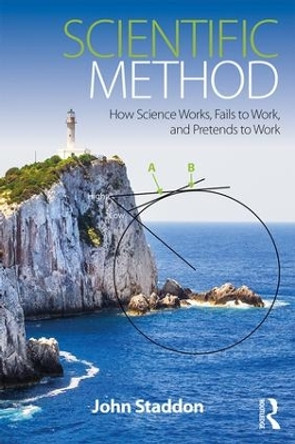Description
This expanded second edition of Scientific Method shows how science works, fails to work or pretends to work by looking at examples from physics, biomedicine, psychology, sociology and economics.
Scientific Method aims to help curious readers understand the idea of science, not by learning a list of techniques but through examples both historical and contemporary. Staddon affirms that if the reader can understand successful studies as well as studies that appear to be scientific but are not, they will become a better judge of the "science" in circulation today. To this end, this new edition includes a new chapter, What is Science?, which points out that science, like any human activity, has its own set of values, with truth being the core. Other new chapters focus on the emergence of AI and machine learning, science and diversity, and behavioral economics. The book also includes textual features such as bullet-points and text boxes on topical issues.
Scientific Method is essential reading for students and professionals trying to make sense of the role of science in society, and of the meaning, value and limitations of scientific methodology.
About the Author
John Staddon is James B. Duke Professor of Psychology and Professor of Biology and Neurobiology, Emeritus at Duke University. He does research on adaptive behavior, economics and the history and philosophy of science.
Reviews
Praise for the first edition:
"John Staddon's aim in this highly readable book is to provide a guide through the 'blizzard of scientific and pseudo-scientific information that rains on the public every day.' He starts by taking a critical look at sciences such as biology and physics and then provides a fascinating and thought-provoking critique of the social sciences, particularly psychology and economics, where he argues that fashionable ideas are often based on untested and untestable theories. Staddon jolts us out of complacent acceptance of how the media often present science."
Marian Stamp Dawkins, University of Oxford, UK
"John Staddon does not take prisoners. In this new book he displays his erudition and sharp critical intelligence to discuss what he sees as the main weaknesses of social sciences today, and especially of mainstream economics. If you are a social scientist, and especially an economist, pray your work has not been cho-sen as an example. If you are not, the book will provide you with an illuminating survey of real and potential pitfalls of current work in social sciences."
Alex Kacelnik, University of Oxford, UK
"In a digital world where many struggle to tell fake news from scientific facts, Scientific Method provides an easy-to-read primer for scientific thinking. The book lives from John Staddon's masterly use of examples that clarify problem-atic methods plaguing the social sciences, such as the proliferation of math-ematical formulas without well-defined or measurable terms, near-unfalsifiable theories that are defended with confidence, and the ritualistic testing of null hypotheses. Science affects our lives, and this short, clear, and enjoyable book will affect how its readers think about science."
Gerd Gigerenzer, Max Planck Institute for Human Development, Germany
"Staddon demonstrates scientific method in action, applying his analytic/critical skill to dozens of applications in epidemiology/biomedicine, animal behavior, social psychology, and the ever-dismal science of economics. He shows that both correlational data and 'gold-standard' multi-group designs may suggest hypoth-eses, but not explanations, which require the discovery of causes across time."
John C. Malone, University of Tennessee, Knoxville, USA
Book Information
ISBN 9781032657714
Author John Staddon
Format Paperback
Page Count 210
Imprint Routledge
Publisher Taylor & Francis Ltd
Weight(grams) 417g





